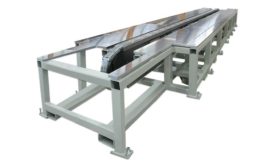Home » conveyors
Articles Tagged with ''conveyors''
Automating battery assembly can improve throughput and boost yields
Read More
Sponsored Content
How to Implement a Precision Indexing Conveyor in Automotive Manufacturing
November 22, 2023
advertisement
Advantages of Precision Link Indexing Conveyors for Medical Device Manufacturing
June 6, 2023
Best Practices for Conveyor Maintenance
Timely and proper maintenance is essential for all key conveyor components.
April 4, 2022
Never miss the latest news and trends driving the manufacturing industry
Stay in the know on the latest assembly trends.
JOIN TODAY!Copyright ©2025. All Rights Reserved BNP Media.
Design, CMS, Hosting & Web Development :: ePublishing










